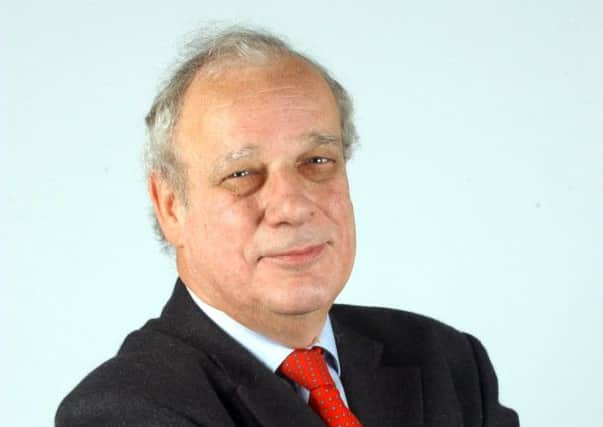Comment: Tricky picks for Neil Woodford


His stewardship of Invesco Perpetual High Income made it one of the UK’s biggest funds. He is now striking out on his own, and early next month he is launching his CF Woodford Equity Income fund.
With the market hitting a 14-year high – the FTSE 100 closed last week at 6,855.81 – investor attention will be keen. But he faces sceptics on two fronts: those nervous about current market levels, and those who question whether a defensive, income-oriented posture is still appropriate in today’s conditions. Among the sceptics is Woodford himself.
Advertisement
Hide AdAdvertisement
Hide AdThe UK market is up 21 per cent over 12 months, but the pace of advance has slowed in the first half of 2014 – a period that has seen some bumpy corrections. Are we seeing the bulls starting to run out of steam?
I believe Woodford is right to be cautious, and in his central concern about the risks to markets right now – the central bank policy of quantitative easing (QE), and in particular the problems of withdrawing from it. Bank of England governor Mark Carney knows he has a problem with house prices in certain areas. Interest rates will almost certainly rise in the next 12 months. Few expected QE to last as long as it did, and fewer still thought through the problems of withdrawing from the lowest interest rates for 350 years.
Woodford told website FE TrustNet last week: “The bull market is five years old and mature. It has been driven by targeted policy by central banks, with QE directly impacting asset prices. It’s been very successful at lifting all prices but it hasn’t transferred into repairing the economy.
“Across the world valuations have risen substantially, a direct product of the targeted policy. We are not close to the end of the process and there will be a number of unintended consequences along the way.”
He now says there is a dangerous disconnect between share prices and fundamentals, and the sharp corrections in the high-growth sectors seen this year highlight the danger. “Either fundamentals have to rise or there needs to be a correction to bring share prices to the right level, and I don’t think the fundamentals are there.”
Technology and biotech sectors in particular have seen some astonishing rises in the past two years – “remarkable pockets of over-valuation” – and some very sharp corrections in recent months. He cites shares in Asos: “When something halves in two months, it gives you a flavour of the kind of environment we are in.”
But the fundamentals aren’t exactly supporting bond yields, either, so interest in equities is likely to stay high. It will be interesting to see the sectors and shares that Woodford selects for his new fund.
An index tracker it will certainly not be. And it will not be easy for a fund manager who has done so well in the past to repeat this performance. Markets do behave in cycles – but never repeat themselves exactly.
The halo of saints
Advertisement
Hide AdAdvertisement
Hide AdSpace prevented me last week from highlighting another of Baillie Gifford’s investment trusts that featured at the company’s investment conference earlier this month. Scottish American Investment Trust (Saints) has sustained a markedly higher than average dividend payout over the years, while still putting in a highly competitive capital performance.
I was particularly impressed with the presentation by manager Dominic Neary and his colleague James Dow – formerly an economics reporter on The Scotsman business desk – setting out how the search for sustained income leads them to companies with growth characteristics.
This popular £330 million trust is currently sporting dividend yield of just over 4 per cent and is still (just) at a discount to net assets. Its merits are as appealing as ever.